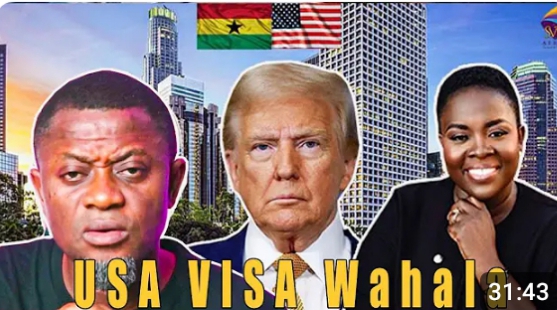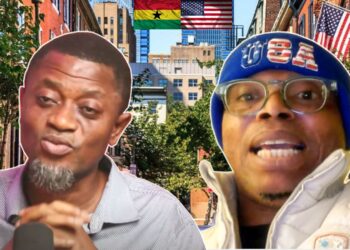Immigration lawyer Aba, based in the United States, has revealed that the U.S. government has introduced strict visa changes, especially targeting countries whose citizens frequently overstay their visas. In an interview with DJ Nyaami on SVTV Africa’s Daily Hustle Worldwide, she explained that instead of completely banning countries like Ghana, the U.S. has reduced the duration and number of entries allowed on various visa types.
Previously, B1/B2 visas were issued for five years with multiple entry options. These were ideal for businesspeople, those attending medical emergencies or conferences, and other short-term visits. Now, for many applicants, those same visas are being issued for only three months with a single entry. This means travelers must reapply and pay the visa fee again every time they wish to enter the U.S.
The same restriction applies to student visas (F1) — students who return to their home country, such as Ghana, must reapply for a visa even if they are still enrolled. If a student’s spouse or children want to visit them, they must also get new F2 visas. Similarly, H1B workers and exchange students are now being issued 3-month, single-entry visas.
People like cruise ship workers who previously used C1/D visas to join ships in the U.S. and travel to the Caribbean now face the same limitation: single entry and a short validity period.
According to Lawyer Aba, these new measures aim to discourage frequent travel, especially from countries with high visa violations. While those with valid 5- or 10-year visas can still use them until expiry, new applicants face stricter terms.
Diplomatic visas (like A and G categories) remain unaffected and still allow multiple entries. Some countries have not been affected by the restrictions at all, but those identified as high-risk now face additional visa fees, sometimes as high as $250 per application. If you plan to travel to the U.S. four times a year, you could end up spending about $1,000 annually just on visa applications.
Aba also clarified that non-immigrant visa changes do not affect the Diversity Visa Lottery program, and dual citizens can still travel using their other passports (e.g., Dutch, Canadian, etc.).
However, she warned that deportations are expected to increase in the coming months. The U.S. government is allocating significant funding to expand immigration enforcement—reportedly making it bigger than the CIA. Programs like Temporary Protected Status (TPS) for citizens of countries like Honduras, Nicaragua, and Cameroon are ending in August, meaning anyone still in the U.S. under TPS could be deported to their home country or a third country.
In summary, Lawyer Aba emphasized that no one is truly safe anymore — even those with green cards or naturalized citizenship should be cautious, as policies are tightening, and legal status can change overnight.

















